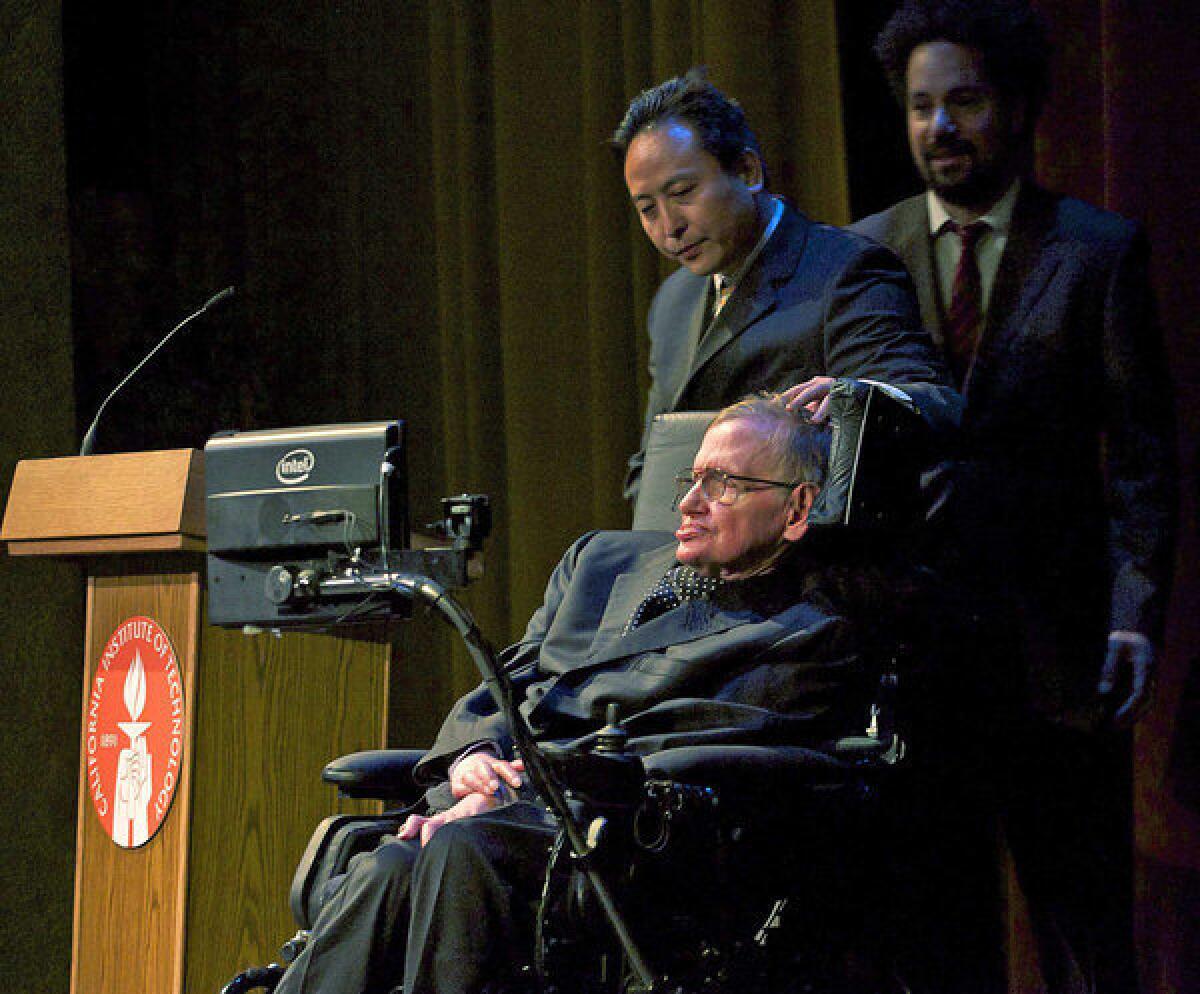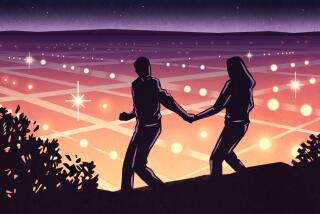Stephen Hawking rocks Caltech

- Share via
The fanfare that accompanied Stephen Hawking’s entrance into Caltech’s Beckman Auditorium on Tuesday evening was at once cosmologically grand and a bit tongue-in-cheek. It was Richard Strauss’ 1896 “Thus Spake Zarathustra,’’ more familiar to modern audiences as the theme music for “2001: A Space Odyssey.” It brought the 500 people inside to their feet for the rock-star cosmologist with crossover va va voom from “The Simpsons” and “The Big Bang Theory.”
Hawking first visited Caltech in 1974, and he has been a visiting professor and speaker almost every year since 1991. This year’s topic, “The Origin of the Universe,” filled the auditorium and lured scores to sit on the lawn outside in the chill evening air and watch the presentation on a vast screen.
The slide show that preceded Hawking’s entrance flashed images of him with Bill Clinton and Barack Obama, with Pope Benedict XVI and Queen Elizabeth II, of Hawking weightless in zero gravity and journeying to the Antarctic whiteness at the bottom of the world.
Hawking is 71 now, and for 50 years has had the motor neuron disease that’s confined his body but not his brain. He is an intellectual product of an Oxbridge education, yet the accent of his computer-generated voice, more familiar to the world’s ears now than his own original one, sounds more American than English.
Earlier, Hawking had dined with Caltech friends and faculty and supporters, preceded by cocktails: a drink called the Pomegranate Paradox served in martini glasses rimmed with minute sugar stars, as Hawking sat in Hollywood dark glasses.
Hawking’s friend of 48 years, Caltech physicist Kip Thorne, took turns at the lectern with Caltech physics professor John P. Preskill regaling dinner guests with tales of Hawking’s four bets with them on abstruse matters of cosmology like black holes and figuring how general relativity squares with quantum mechanics.
One bet remains unresolved; the other three were conceded by Hawking. For the wager payoff on a 1974 bet, Hawking bought Thorne a year’s subscription to Penthouse magazine.
Events like the Caltech lecture, coupled with Hawking’s force of will, his brainpower and the Greek-tragic nature of his illness, have made him an unusually high-profile figure in science, where celebrity power is rarer than, well, a blue moon.
He has used his formidable virtual voice to rail at times about hatchet whacks to science funding, as well as warning humans against trying to get the attention of aliens, lest they decide to treat us like a fast-food stop en route to the next galaxy. When it comes from Hawking, the world takes notice.
It’s an example that scientists may be reluctant to copy. “Popular” and “science” work together as the name of a magazine but not, to some researchers, as an operating principle for their work. Yet here’s the reality of it: In an era in which funding follows star power, like it or not, that performer’s skill -- on display from congressional hearings to YouTube moments -- and the ability to make the abstract and the abstruse enthralling, is sometimes exactly what the PhD ordered.
ALSO:
Building a better billboard law in LA
Quentin Kopp, no longer aboard the latest bullet train
More to Read
A cure for the common opinion
Get thought-provoking perspectives with our weekly newsletter.
You may occasionally receive promotional content from the Los Angeles Times.










